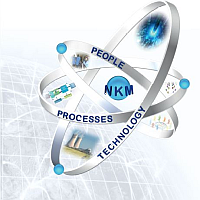Speaker
Mr
Se-Kee Oh
(KEPCO International Nuclear Graduate School (KINGS))
Description
In spite of the world nuclear community’s systematic and multilateral efforts during the COP21, most of the conference participants were reluctant to acknowledge the value of nuclear as a low carbon energy source. In fact, the on-going aftermath of Fukushima nuclear disaster has been overwhelming despite the evidence that there neither was any critical technical flaw nor fatal radiation casualties. This shows that advanced nuclear knowledge failed to resonate with public perception on nuclear energy. In this respect, it is now time to focus on achieving sustainable change in nuclear engineering education for the future.
The KEPCO International Nuclear Graduate School (KINGS) was established to nurture leadership-level nuclear power professionals in the global standard. It affiliates with Korean nuclear industry to achieve three major goals that are also a universal prerequisite for higher education of engineering in the 21st century as follows: “a balance between education and training,” “harmony between engineering and managerial skills,” and “the application of systems engineering to nuclear power projects.” KINGS curriculum requires transdisciplinary coordination among engineering disciplines, engineering specialties, and socioeconomic methods.
| Country or International Organization | Republic of Korea |
|---|
Author
Mr
Se-Kee Oh
(KEPCO International Nuclear Graduate School (KINGS))

